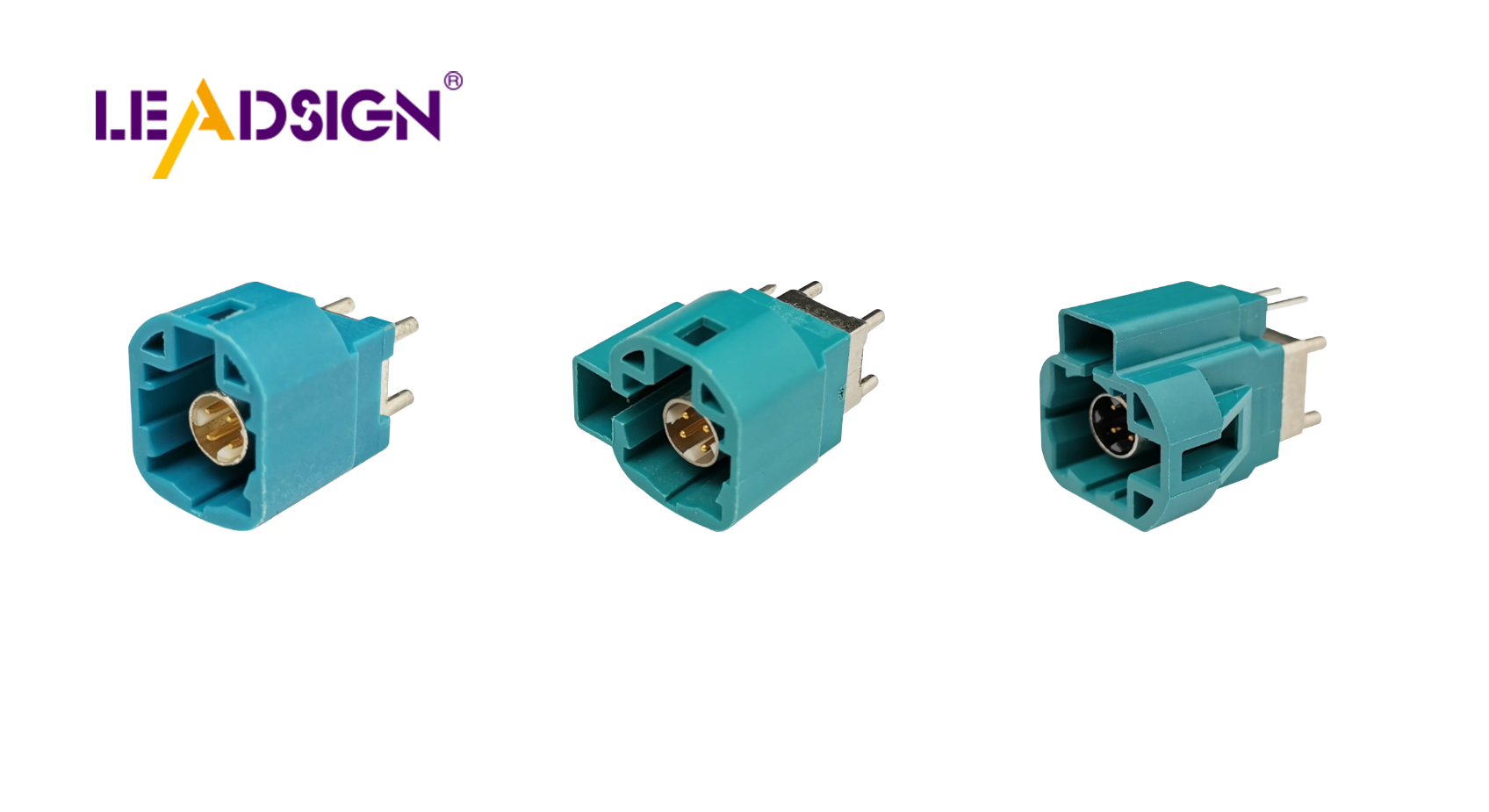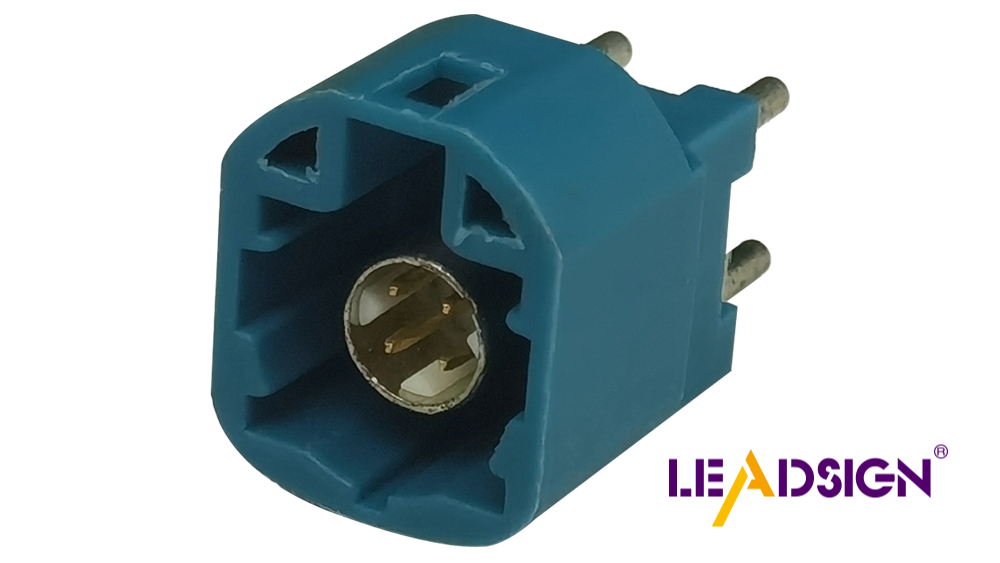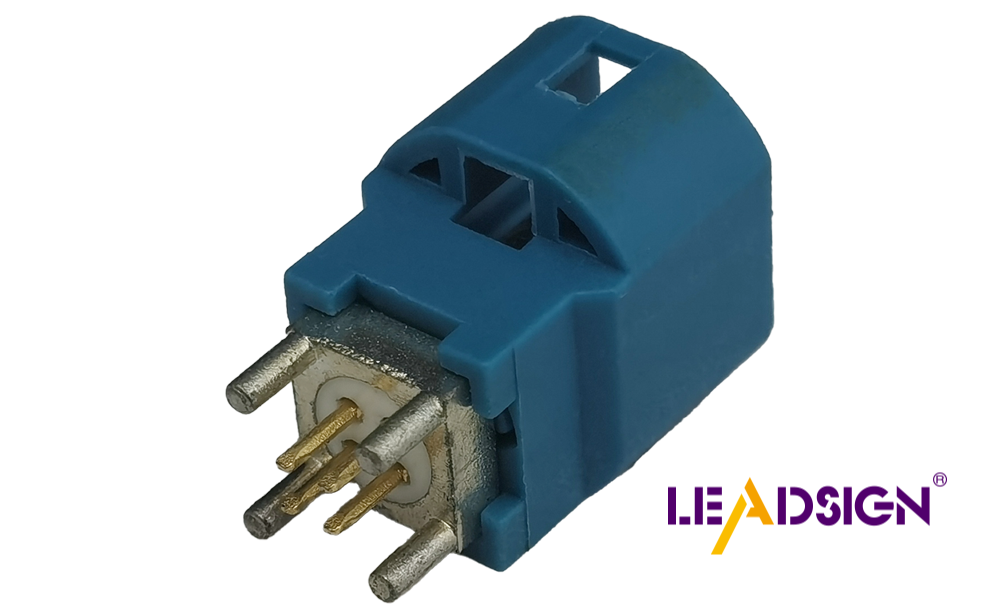A Beginner’s Guide to Automotive Electrical Connector Plugs

Car electrical plugs, including the car connector plug, are important for your car to work. They connect systems and send power, signals, and data. This helps parts like the engine and sensors work together.
Car connectors are made to handle tough conditions. They resist heat, shaking, and water to work well for a long time. Their strength keeps your car safe and running smoothly. Knowing about these plugs helps you fix and care for your car easily.
Key Takeaways
Car electrical connectors are important for safe and smooth driving. They link parts to share power and signals.
Picking the right connector means checking if it fits your car. It should handle heat and water without problems.
Cleaning and checking connectors often stops problems and keeps your car working well.
What Are Automotive Electrical Connector Plugs?
Definition and purpose of car connector plugs
Car electrical plugs are key parts of your car's system. They join wires and cables to keep circuits working. This helps power, signals, and data move between car parts. Without them, systems like the engine or brakes can't work together. This could make driving unsafe. These plugs stay strong in heat, shaking, and wet conditions. They keep your car running safely and reliably.
How car electrical plug connectors work in vehicle systems
Car plug connectors have parts that fit tightly together. For example, male connectors have a blade that fits into female connectors with a slot. This design stops loose connections. These plugs send power, signals, and data between car systems. They help the engine, transmission, and sensors work together. This keeps your car safe and running well.
Component | Description |
|---|---|
These have a blade that fits into a slot. | |
Female Blade Connectors | These have a slot to hold the male blade. |
Common applications of automotive connectors in modern vehicles
Car connectors are used in many parts of your car. They help control the engine and powertrain for smooth driving. They are also in audio systems, lights, and navigation tools. Pin connectors work well for high-power parts like headlights. These plugs link systems to send power and data. Strong connectors stop failures and keep your car working in all conditions.
Found in audio systems and car lights.
Pin connectors work for high-power parts like headlights.
Connectors link systems and parts in a car.
They send power, signals, and data to keep cars running.
Types of Automotive Electrical Connector Plugs

Terminal connectors and their uses in vehicle wiring
Terminal connectors are key parts of car wiring systems. They help move power efficiently, reducing energy waste and improving performance. Made from strong materials, they last long even in tough conditions. This means fewer replacements are needed. They also make cars safer by lowering risks like short circuits or overheating. These connectors are often used in important systems like engine controls or power networks.
Blade connectors and their specific applications
Blade connectors are very common in cars. Their flat shape makes a tight connection, stopping loose wires. They are easy to plug in and take out, which helps with repairs. Blade connectors are used for powering relays, fuses, and other parts needing strong connections. They come in different sizes to fit various wiring needs.
Multi-pin connectors for complex electrical systems
Modern cars use multi-pin connectors for complicated systems. These connectors have many pins to handle multiple circuits at once. They are important for systems like infotainment, driver-assistance, and engine controls. Multi-pin connectors stay secure even with lots of shaking, keeping car systems reliable.
High-speed data connectors (e.g., HSD connectors) for advanced automotive electronics
High-speed data connectors, like HSD connectors, are vital for advanced car electronics. They send data quickly and safely between systems like ADAS and infotainment. These connectors allow fast charging and better energy use in battery systems. Their ability to handle high-speed data makes them essential for modern cars.
How to Pick the Right Car Connector Plug
Making Sure It Works with Your Car's System
To pick the right car plug, check if it fits your car's system. Know your car's voltage, current, and frequency needs. These details help the plug work well with your car. Check the cable type and make sure it matches the plug. This stops bad connections that might break your car's systems. Think about where the plug will be used. If it’s in a wet area, choose a weatherproof plug to avoid damage.
Checking Strength and Material for Long Use
Good materials make plugs last longer and work better. Metals like copper or brass carry power well and lose less energy. Strong plastics like PEEK handle heat, so they’re good for hot areas. Weak materials can break and make your car unsafe. Always pick plugs that meet quality rules. This way, they can handle tough conditions like heat or water.
Protecting Against Heat, Water, and Rust
Heat, water, and rust can harm car plugs over time. Weatherproof plugs are made to block these problems. For example, plugs that resist water stop damage in wet places. This is important for cars in rainy or humid areas. Picking plugs that fight these issues makes them last longer. It also keeps your car working well.
Choosing Plugs for Your Car's Needs
Match plugs to what your car systems need. For example, power windows and sensors need plugs that handle their power levels. Decide how much water protection is needed, like water-resistant or waterproof. Make sure the plug fits your cables to avoid problems and make setup easy. Picking the right plugs helps your car work better and last longer.
Installation and Maintenance of Car Electrical Plug Connectors

Step-by-step guide to installing automotive connectors
Installing car connectors properly helps them work well and last. Follow these steps to install them safely:
Remove the wire cover with a wire stripper. This shows the metal for connection.
Attach male pins to wires using a crimping tool. Make sure they are tight to avoid loose wires.
Add a seal to the wires. This keeps out water and dirt, especially for weatherproof plugs.
Push the terminals into the right connectors. Press firmly to secure them in place.
Taking your time during installation stops problems like loose or bad connections.
Tips for ensuring secure and reliable connections
To keep connections strong, follow these tips:
Use strain relief to spread out pressure on the wires.
Pick the right tools for stripping and crimping wires.
Provide clear guides or training for working with special connectors.
These tips help avoid failures and make connectors last longer.
Routine maintenance to prevent wear and tear on connectors
Regular care keeps car connectors working well. Check them often for damage, rust, or wear. Replace broken connectors quickly to avoid problems. Clean them by removing dirt and dust. Use a small brush for deep cleaning. Adding dielectric grease stops rust and makes connectors last longer.
Cleaning and protecting car connector plugs from corrosion
Stopping rust is key to keeping connectors in good shape. Soak connectors in vinegar to loosen rust. Wash them with baking soda and water, then rinse with clean water. Use a contact cleaner and eraser to clean the metal parts. After cleaning, add dielectric grease to stop future rust. Plug and unplug the connector a few times with cleaner applied for better contact. Let everything dry before putting it back together.
By following these steps, you can keep your car connectors clean and working well in all parts of your car.
Troubleshooting Common Issues with Automotive Connectors
Finding and fixing loose or bad connections
Loose or bad connections can cause car problems. You might see flickering lights, smell something burning, or lose power in parts of the car. Start by looking closely at the connectors. Check for rust, broken pieces, or burnt spots. Use a multimeter to check voltage and current. Bad readings mean there’s a problem.
To fix loose connections, try moving the connector gently while the car is on. If the system reacts, you’ve found the issue. Tighten it to make it work again. If the connector is broken, replace it. Fixing these problems early stops bigger issues later.
Cleaning rust and dirt from car connectors
Rust makes connectors weak and harder to use. Clean them well to fix this. Use a contact cleaner to remove dirt and rust. Add special grease to protect the connectors. This grease keeps dirt out and stops rust from coming back. It also helps prevent signal problems. For tough conditions, use weatherproof connectors to block water and chemicals.
Replacing broken or old connectors
Sometimes, connectors are too damaged to fix. Look for rust, broken parts, or bad test results. When replacing, pick one that matches your car’s original connector. This ensures it fits and works well. Check the new connector for quality before using it. A good replacement keeps your car safe and running smoothly.
Knowing when to ask for expert help
Some connector problems need a professional. If you can’t find the issue or it’s too serious, get help. Experts have the right tools and skills to fix complex problems. This ensures the repair is done correctly and avoids more damage to your car.
Car plug connectors are important for your car's safety and function. They help systems like the engine and transmission work together. Strong connectors handle tough conditions and keep things running smoothly.
Key Points:
Car connectors move power and signals, vital for modern cars.
Strong connections stop problems in key parts like brakes and lights.
Checking connectors often keeps them working their best.
Learning about car plug types, setup, and fixing issues helps care for your car. Look at guides or ask experts for harder problems.
FAQ
What should you do if a connector doesn’t fit properly?
Tip: Check the connector’s size and type before using it. If it doesn’t fit, make sure it matches your car’s system. You can also check the user manual for help.
How can you tell if a connector is damaged?
Look for cracks, rust, or burnt marks on the connector. Test it with a multimeter to check voltage levels. Damaged connectors may cause lights to flicker or systems to fail.
Can you clean connectors without special tools?
Yes! Use vinegar and baking soda to clean off rust. A small brush can remove dirt easily. Add dielectric grease to stop rust from coming back later.
See Also
Exploring Ford Fakra Connectors: A Complete Overview
Introduction to HSD Connectors in Automotive Applications
Fakra Plug Explained: An In-Depth Resource

